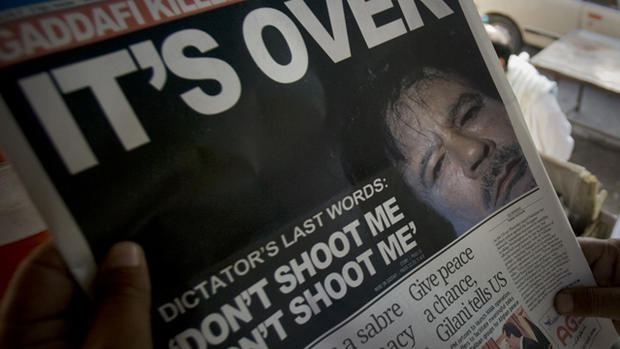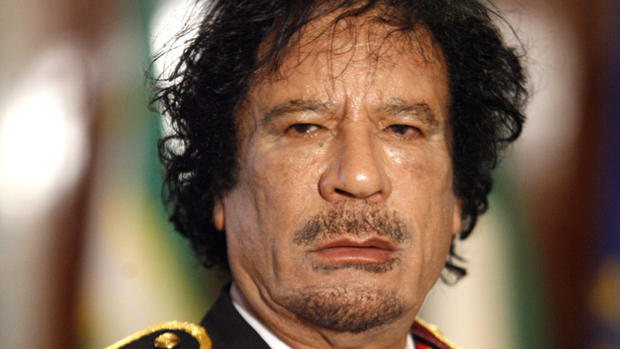Qaddafi death a turning point for Libyan gov't
(Watch analysis at left)
"In theory, this should move the Libyans beyond the state of fighting where they had to take Sirte, they had to take Bali Walid, they had to find, kill or capture Qaddafi," CBS News national security consultant Juan Zarate told CBS Radio News. "Now they have to move toward governing, what comes next in the post-Qaddafi world, and so this is an important turning point because it consolidates their ability now to try to govern."
"Don't shoot": Qaddafi's last moments
Qaddafi dead after Sirte battle, PM confirms
Special Section: Anger in the Arab World
Qaddafi's death was confirmed by the country's new prime minister, Mahmoud Jibril, hours after rumors began to circulate when the revolutionaries seized Qaddafi's hometown of Sirte early Thursday.
However, the death of Qaddafi, who as a 27-year-old army captain led a coup that overthrew the country's monarchy in 1969, doesn't mean a definite end to the fighting in Libya.
"You have a series of individuals -- rings of loyalty to Qaddafi -- who may continue to fight and may see that it's worth it to try to fight to the end as opposed to see themselves tried or killed by the new government," Zarate said.
The victory also now challenges the country's new government, the Transitional National Council, to take whatever momentum gained from Qaddafi's demise to move toward elections and to bring together any factions within the revolution, Zarate said.
The council also sidesteps what Zarate called a "headache" because Qaddafi died and wasn't captured alive. Had the fugitive dictator been taken into custody, the government would have had to address the issue of whether to try him in Libya or send him to the International Criminal Court, which had issued a warrant for his arrest.
On a larger scale, Zarate said Qaddafi's end sends a message to regional rulers.
"For the African leaders, who were ones who looked at him as 'the king of kings,' it's really a clear message that this type of autocracy can't stand any longer and will fall to the power of the people," said Zarate, "and really is a very important, powerful message in the region across the board."



